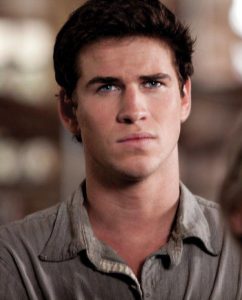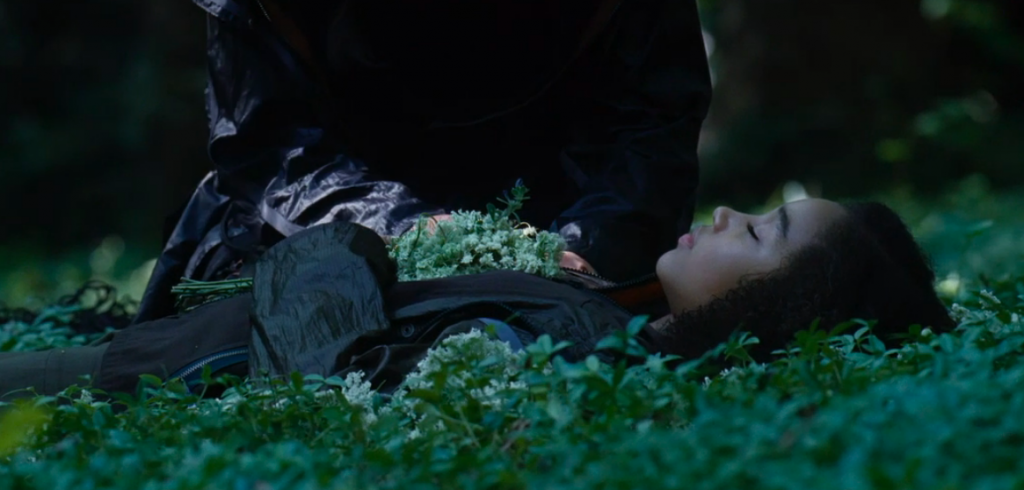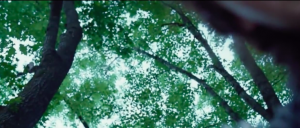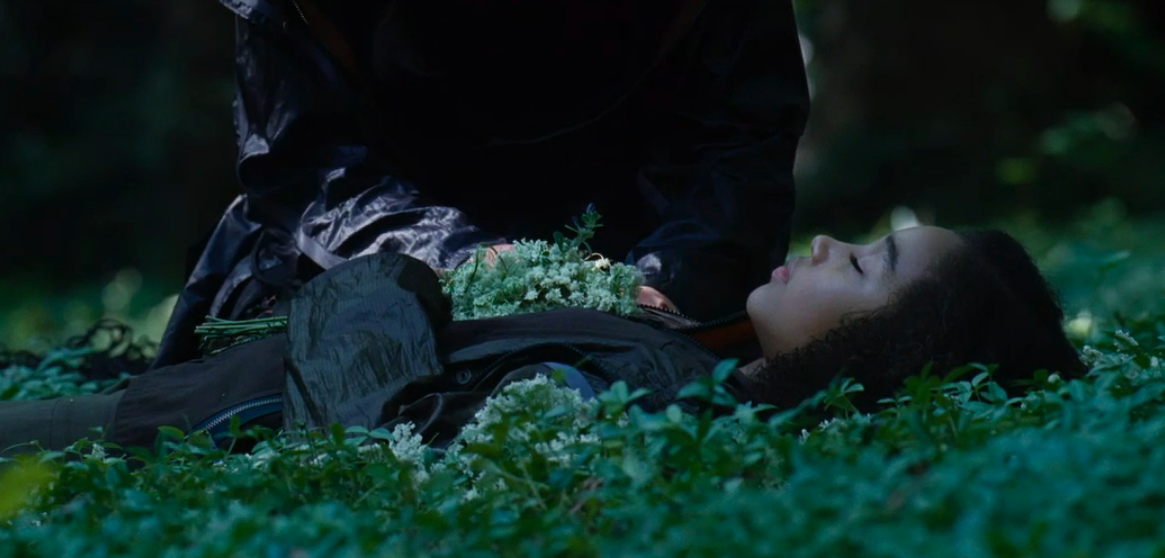Purpose of Third Person Point of View in Collins’ The Hunger Games
As I was scrolling through one of the thousands of reviews on my highly acclaimed movie, The Hunger Games, I came across one that struck me as quite shallow. Although this writer is not well-known, I still feel offended at her lack of intellectual thought proccess towards my decisions in film making. The writer claimed that the random cuts to characters from other districts or sites on the arena “were just so abrupt and seemingly pointless” (Cyna). Additionally, this source did not agree with my change of view point in the movie. The reviewer expected a movie all from the view point of Katniss. Of course, a movie from her point of view would have been thrilling, but the third person point of view allowed me to work my magic…
And by magic I mean being able to express how everyone felt during the film.

Overall, I chose to add in scenes, like shots of Gale in District 12 as he watches Katniss fall in love with Peeta, to invoke foreshadowing for the future movies. As a producer, you have to leave the viewer wanting more after the film so they watch the following ones. I do love the plot, but I have to make a living off this folks!
Furthermore, shots that went between the arena and the commentators were crucial to the background information loss from the lack of first person narration found in the book. For example, in the book Katniss is able to explain from her personal background about tracker jackers (collins, pg. 185). But in the movie the audience needs the Game’s commentator, Claudius, to explain the origin and consequences of the killer wasps.

In addition to point of view, I chose to film from third person to incorporate multiple perspectives on the situation. My most impressive scene using third person point of view tactics was Rue’s death. When Rue dies we don’t just read what Katniss has to say about it, although Collins does a great job depicting the emotions of the moment in her book, but we get an insight of Rue’s own perception of her death. I situated the cameras in a way that it seemed as if the viewer was looking from Rue’s eyes.

The viewer now felt as if they were Rue and could see what she saw as she died rather than just having the viewer literally watch Rue die in Katniss’s arms. This addition allowed the viewer to feel Rue’s death intimately. Furthermore, the intimacy is exponentially risen when Rue asks for Katniss “to sing” to her as she slowly fades away (Collins, 105). I also had the scene turn from seeing the trees to Katniss’ face to the slowly blurred vision, lack of noise, and then ultimately the flashing indicated eye fluttering. Finally, the white screen along with the white noise indicated Rue’s death.

I did this so the viewer could feel rue’s death in first person while still being able to see the situation from Katniss’s’ point of view beforehand and after.
https://www.youtube.com/watch?v=a-ins2kYZqQ
As you can see from only watching Rue’s death scene, The use of third person narration is key. Without it, we would not be able to experience the passion and loyalty Rue had more Katniss. We also would not be able to feel Katniss’ sorrow and anger at the same time. Being able to experience both of the character’s emotions at the same time slightly overwhelms the viewer emotionally, but also allows for Rue’s death to be symbolic for the rebellion that is focused on much more in later Hunger Games movies.
Works Cited:
Collins, Suzanne. The Hunger Games. NY, NY: Scholastic, 2008. Print.
Hunger Games. Dir. Francis Lawrence and Gary Ross. Lions Gate Entertainment Inc, 2012.movie.
Cyna. Movie Review: The Hunger games. 12 April 2012

Helen,
You did a great job of conveying the reason the movie had to be from a third person perspective, and how that contrasted with the book. You highlight how these perspectives alter the movie from the book in a succinct yet substantial manner.
One thing to work on is perhaps analyzing deeper why you made these directorial decisions. You say that this setup the plot for further movies, but maybe go beyond that and add how it enhanced the movie itself.
By setting this film up in a manner that allowed for sequels by erasing the first person structure, do you believe the director lessened the integrity of the film itself for the commercial value of sequels.
Helen,
One thing I wished I did, that you did, was clearly show pictures that tied to the evidence you stated. It lets the reader better visualize the evidence you said, and makes it easier to follow along with your analysis. You were able to tell the readers the specific additions in scene and their contrast with the Collins’ book.
An aspect that could use a little revision is your first paragraph. While I see the outside source’s view, I think a reinterpretation in your own words to supplement their actual quotations, would strengthen the message that this expert is getting across. Also you said (Cyna) and I was wondering how credible this source was.
I too do analyzed Rue’s death scene, and I can obviously see the similarities between our ideas. I 100% agree that the use of the camera in Rue’s perspective helps create an intimate relationship between you and the character. A sort of reverse alienation effect.
-Spencer
Hey Helen, so honestly really enjoyed reading your post. I didn’t realize the affect the third person had in making this film in order to create a web of connectivity between for one the book and also to accurately convey the original book. The symbolism of the third person was really brought to life in your post. One thing I would work on is your transitions through the post. I don’t mean to be the ‘bad critic’ but it seemed like you were jumping from argument to argument. I would like to know if Susan Collins envisioned the protests to be like the movie conveyed and if there is any interview on her thoughts on the subject.
Hi Helen,
So what immediately drew me to this post was your featured image. Not just because I love Amandla (even though that was a big factor ?), it was also the way the title and feature image worked together to draw my attention and interest in the topic of your post. The title and image made me think about the power that the third person person perspective had on the film, and they made me recall the slew emotions I felt when I saw Rue die. You sustained my attention by addressing other powerful and emotional scenes in the movie that otherwise could not have taken place if the film were solely from Katniss’ perspective. Your thesis was strong and supported by the scenes you brought up in both the movie and the book, however, there is very use of textual evidence to support your argument. Although I did see the movie and read the book and can imagine what took place in the scenes you address, having direct quotations from characters as opposed to solely images would definitely strengthen your claims. One thing to think about, is the specific scenes that you choose to talk about and their relationship to one another. The scenes that you chose were powerful, but the impact of your argument could have been greater if the scenes were more interconnected.
Pingback: sex games no download